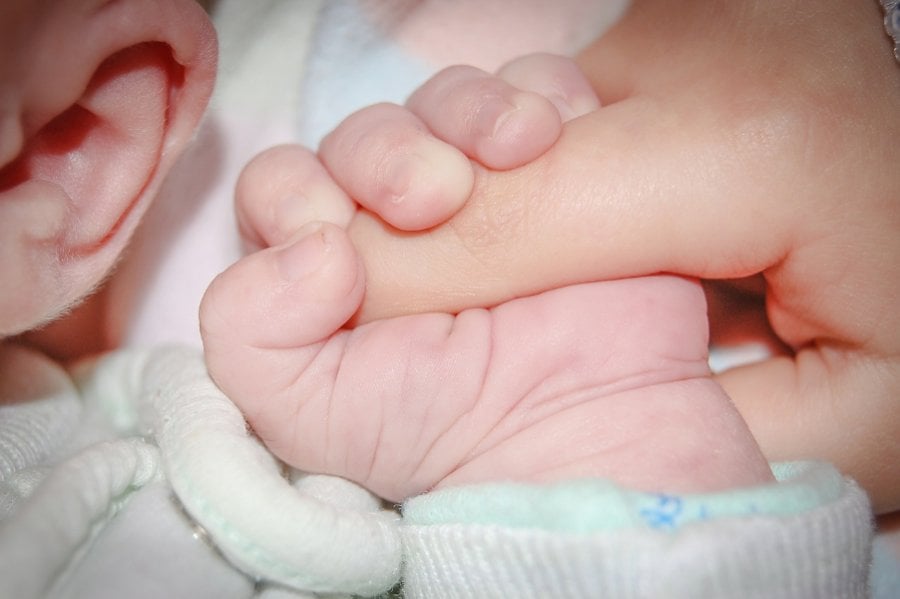Largest ever maternity audit publishes report to help NHS services deliver improvements for women and babies
9 November 2017 London School of Hygiene & Tropical Medicine London School of Hygiene & Tropical Medicine https://lshtm.ac.uk/themes/custom/lshtm/images/lshtm-logo-black.png
Commissioned by the Healthcare Quality Improvement Partnership (HQIP) as part of the National Clinical Audit Programme, the report identifies areas of good practice and opportunities for improvement in the care of women and babies in maternity services across Britain.
The NMPA is the largest quality improvement programme for maternity and neonatal services in the world. It is a landmark collaboration between the London School of Hygiene & Tropical Medicine, the Royal College of Obstetricians and Gynaecologists (RCOG), the Royal College of Midwives (RCM) and the Royal College of Paediatrics and Child Health (RCPCH).
The report includes data from 149 of 155 NHS trusts and boards that provide maternity care in England, Scotland and Wales. It is based on electronic records of 696,738 births between April 2015 and March 2016*. The data will enable women, clinicians, commissioners and policy makers to evaluate care given locally and nationally and use it to drive further improvements in the quality of maternity services.
The key clinical findings include:
- Major obstetric haemorrhage, a leading cause of maternal illness, occurs in around 1 in 40 women, but in some units the rate observed was as high as 1 in 20.
- Third and fourth degree tears, also known as obstetric anal sphincter injuries, occur in around 1 in 30 vaginal births, but in some units it was reported in up to 1 in 15 vaginal births. Severe tears are a major complication of vaginal birth and increase risk of incontinence.
- Hospitals reported that about 1 in 80 babies require additional support in the minutes after birth, as indicated by a low Apgar score – a measure of the baby’s breathing and circulation – in some units this was as high as 1 in 30.
Other key messages include:
- Eight out of 10 babies in England receive skin to skin contact within one hour of birth which is known to be important in establishing breastfeeding and bonding. However, there is variation in this measure and in breastfeeding rates.
- Of women whose smoking status was recorded at their first antenatal appointment, 14% were smoking in England, 16% in Scotland and 18% in Wales. There is wide variation in the proportion of women who were reported to have stopped smoking during pregnancy.
- Fewer than half of pregnant women had a body mass index (BMI) within the normal range between 18.5 and 25, and 1 in 5 were obese with a BMI of 30 or over.
- Over half of all births are to women aged 30 or over and 1 in 7 first births are to women aged 35 or over. The high levels of maternal obesity and increasing maternal age have implications for outcomes and for maternity and neonatal service provision.
The report recommends further improvements in the quality of maternity data so that more outcomes, such as proportion of births without intervention, can be measured accurately.
Jan van der Meulen, Professor of Clinical Epidemiology at the London School of Hygiene & Tropical Medicine and Chair of the NMPA Project Team, said: “This national audit, the largest of its kind in the world, makes it possible for the first time to compare the care that maternity units in England, Scotland and Wales provide to 750,000 pregnant women and their babies each year. In some hospitals, the quality of the clinical data needs to be further improved so that the audit can provide an accurate picture of the care that they provide. The audit’s results will be a great help to improve the quality of maternity services.”
Professor Lesley Regan, President of the Royal College of Obstetricians and Gynaecologists, said: “While the UK is a safe place for women giving birth, this report shows variation in care and outcomes for women and babies in maternity services in Britain. Some variation is expected and can drive new improvements, but unwarranted or unexplained variation requires investigation. We urge all maternity units to examine their own results and those of their neighbours both to identify role models and to drive quality improvement locally.”
Report
National Maternity and Perinatal Audit
LSHTM's short courses provide opportunities to study specialised topics across a broad range of public and global health fields. From AMR to vaccines, travel medicine to clinical trials, and modelling to malaria, refresh your skills and join one of our short courses today.